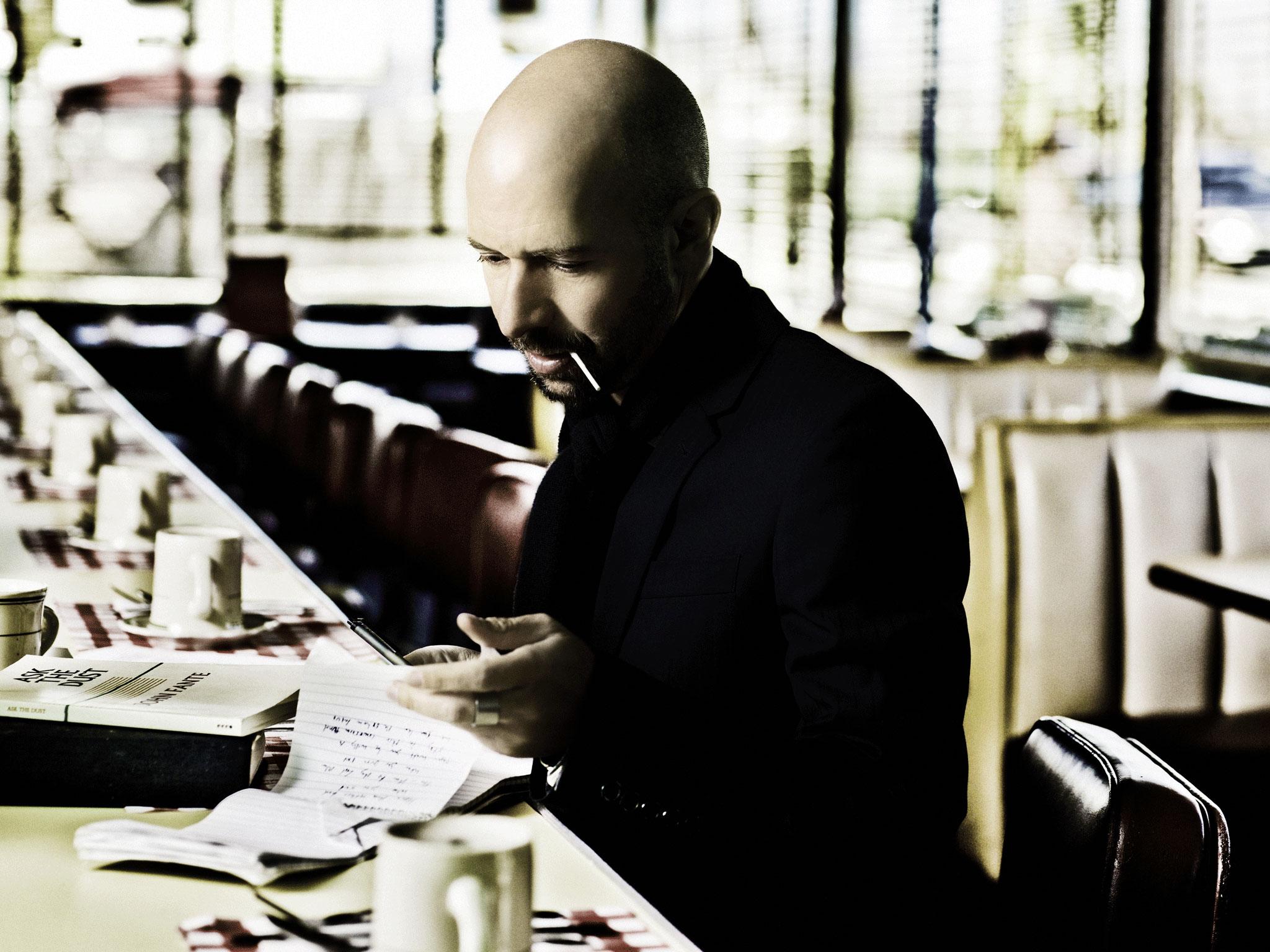The Game author and former pick-up artist Neil Strauss on sex, marriage and why he's a feminist
'At a certain age, I wanted to date and have a lot of sex. And at this age, I want to be in a relationship and have a lot of sex.'

Your support helps us to tell the story
From reproductive rights to climate change to Big Tech, The Independent is on the ground when the story is developing. Whether it's investigating the financials of Elon Musk's pro-Trump PAC or producing our latest documentary, 'The A Word', which shines a light on the American women fighting for reproductive rights, we know how important it is to parse out the facts from the messaging.
At such a critical moment in US history, we need reporters on the ground. Your donation allows us to keep sending journalists to speak to both sides of the story.
The Independent is trusted by Americans across the entire political spectrum. And unlike many other quality news outlets, we choose not to lock Americans out of our reporting and analysis with paywalls. We believe quality journalism should be available to everyone, paid for by those who can afford it.
Your support makes all the difference.A decade ago, pick-up artists were best-selling authors who schooled other men on how to attract women with a few simple tricks and turns of phrase. They sold themselves as female translators, who “got” those strange creatures from Venus. Think of them as the un-PG version of Joey from Friends.
One such tactic known as “negging” involved complimenting and insulting a woman in one stroke, to set yourself apart from other men while lowering her self-esteem.
Attitudes have since changed. As we ride the wave of fourth wave feminism and witness the rise of men’s rights activism, pick-up artistry seems archaic, heteronormative, and creepy. Women were approached as prey, rather than equals. Perhaps the pioneers could have hardly predicted how unnerving their work would now look.

Writer and journalist Neil Strauss was among the most high-profile figures in this world. In 2005, he released the autobiographical The Game: Penetrating the Secret Society of Pickup Artists in which he infiltrates and adopt the tactics of the so-called seduction community. The book chronicles his frustrations in failing to attract women, and his training at the hands of a master-seducer named Mystery. Strauss and a group of fellow pick-up artists ended up living together in a mansion called Project Hollywood, which eventually disbanded.
Describing “sarging”, or going on the pull, he writes: “A side effect of sarging is that it can lower one's opinion of the opposite sex.”
But it was a hit: making the New York Times Bestseller list and shifting 2.5million copies worldwide. The follow-up, Rules of the Game, which included a 30-day regime to follow to become better at dating, released in 2007 was also a best-seller.
What has changed since then? “Pretty much everything,” Strauss tells The Independent. “Fun marriage, a baby who’s always laughing, and most important, the one change that made it all possible, happier inside."
Strauss is now in his mid-40s, and married with a two-year-old child. He has been described as a reformed pick-up artists, although he rejects this label.
“I’ve never described myself that way, but I’ve definitely read it a lot. It reads like the media wanting a narrative. It’s like describing someone in a relationship as a ‘reformed single person.’ At a certain age, I wanted to date and have a lot of sex. And at this age, I want to be in a relationship and have a lot of sex.”
Asked if he is a feminist, he replies: “Of course. I’d be worried about anyone who doesn’t believe that men and women should have equal rights and opportunities.” As for meninism he adds: “Meninism isn’t a real movement. It’s a meme.”
While he has moved away from his theories in The Game, he’s still interested in human interaction. But instead of manipulating others, his sights are set on himself. In 2015, he released The Truth: An Uncomfortable Book About Relationships in which he recounts his struggles to find and maintain a long-term, monogamous relationship after being a key player (no pun intended) in the pick-up scene.
“I started off writing The Truth with a clear message. Relationships are broken in our society. There is so much infidelity, divorce, abuse, and unhappiness. There must be a better way to live together. What I discovered instead is that it wasn’t relationships that were broken, it was me that was broken."
“I still think it’s crucial to understand psychology, social dynamics, and yourself, and to always work to be a better person. If not for attraction, then for business, relationships, and your own happiness. So for those looking to be the best versions of themselves, the work is an inside job.
"It’s about finding and eliminating the false beliefs that hold you back: that you are not enough, that you are not loveable, that you don’t fit in. Even during The Game days, it was clear that most people’s problems were not with women, they were in their heads.
“The Truth is the story of the intense journey I took to attempt alternatives to monogamy, overcome my fears of intimacy, and to understand the deep psychology behind why we cheat, why we stay with partners who are bad for us, and how to be happily committed. I left a path in the book for others to follow who are facing similar relationship challenges. I’m married now and our son is about to turn two, so even if the book doesn’t work for anyone else, at least it worked for us.”
Looking back on the period of his life dominated by The Game, what stands out for him isn't half as titillating as you might think. "The most memorable moments I had were, ironically, the strong male friendships," he says. "The so-called seduction community was a world all about women that was completely devoid of women."
"For someone like myself, who was a loner growing up, and who was raised mostly by two strong women, it was the first time I had such deep and honest male friendships. As the film of it is being made, one of the things the writers have all picked up on is that the arc of the book is my relationship not with women, but with my mentor in the book, Mystery."
As an author who shaped how countless men approached relationships, does he regret writing it?
"The book is a document of what I experienced, thought, and felt at the time, so as a book that was true to who I was then, there’s nothing I could regret. I’m sure if I read it today, there’s a lot that would make me cringe," he admits.
"What I’ve noticed is that most people who buy the book to change their behaviour think it’s a destination, but instead it becomes the beginning of a journey that takes them somewhere different than they anticipated. We often feel a need to protect people from making mistakes, but if we do that, they never get to learn for themselves."
He adds: "I think the message is already in the book. It ends with a line, 'To win the game is to leave it'."
Join our commenting forum
Join thought-provoking conversations, follow other Independent readers and see their replies
Comments